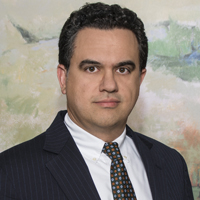
Victory for Paul Vitanza and Chris Collins
February 26, 2016
Christian Dennie Named Rising Star for 2016
March 26, 2016Peter Deppe (hereinafter “Plaintiff”) filed suit against the National Collegiate Athletic Association (hereinafter “NCAA” or “Defendant”) under Section 1 of the Sherman. The suit was filed on March 8, 2016 in the United States District Court, Southern District of Indiana, Indianapolis Division. Plaintiff seeks unspecified damages and injunctive relief. The suit also seeks certification as a class action.
The facts as presented in the Class Action Compliant (hereinafter “Complaint”) are as follows. Plaintiff was a punter who was recruited by several Division I FBS institutions. Plaintiff was offered scholarships by some institutions and was invited as a walk-on by others. He decided to enroll at the Northern Illinois University (“NIU”). During his freshman year he was red-shirted and expected to receive a scholarship in following years based on assertions of a then NIU assistant football coach. According to the Complaint, NIU recruited another punter and Plaintiff realized he was unlikely to receive adequate playing time. As a result, he looked into the possibility of transferring to another institution. Plaintiff came in contact with the football coaching staff at the University of Iowa (“Iowa”). According to the Complaint, Iowa invited the Plaintiff to walk-on to the football team as long as he would be immediately eligible to compete. Per NCAA rules pertaining to football transfers, Plaintiff would not be immediately eligible to compete without a waiver of NCAA rules. Because Plaintiff was not immediately eligible to compete, Iowa located another punter and, thus, there was not room for Plaintiff on the Iowa football team. Plaintiff attempted to seek a waiver from the NCAA, but did so without the support of a member institution. Accordingly, the NCAA indicated it could not grant waiver without the waiver being presented by a member institution.
The Complaint states “[t]he specific practices challenged here are: (i) the NCAA’s unlawful caps on the number of football Division I football scholarships that can be awarded by Division I member institutions, and (ii) the NCAA’s transfer rules that prohibit a Division I football player from transferring to another NCAA Division I school without loss of athletic eligibility for a period of time.”
Plaintiff claims “[t]he relevant market is the nationwide market for the labor of Division I football student athletes. In this labor market, student athletes compete for spots on Division I football athletic teams of NCAA member institutions, and NCAA member institutions compete for the best Division I football collegiate student athletes by paying in-kind benefits, namely, Division I football scholarships, academic programs, access to training facilities, and instruction from premier coaches.” Plaintiff further claims “the only reason that NCAA Division I schools do not engage in price competition is due to the fact the Bylaws at issue prevent them from doing so.”
Plaintiff seeks to certify a class of similarly situated individuals. As such, Plaintiff sues on his own behalf and the following two classes, including the following “Injunctive Relief Class” pursuant to Rule 23(a) and (b)(2):
All individuals who, from November 4, 2011 to the present, have been a member of an NCAA Division I football team;
and the following “Transfer Core Issues Class” pursuant to Rule 23(a), (b)(3), and (c)(4):
All individuals who, from November 4, 2011 to the present, have sought to transfer from one NCAA Division I football school to another NCAA Division I football school, and pursuant to NCAA transfer rules, were considered to be, or would have been considered to be, athletically ineligible to participate in NCAA Division I football for any period of time.
Plaintiff sets forth a claim under Section 1 of the Sherman Act and requested the following relief: (1) a declaration by this Court that Defendant’s conduct constituted a conspiracy and that Defendant is liable for the conduct of or damage inflicted by any other coconspirator; (2) a declaration that the NCAA’s restrictions on the number of athletic-based scholarships that can be offered to student-athletes are also unlawful; (3) a declaration that the NCAA’s restrictions on players’ ability to transfer without loss of athletic eligibility are also unlawful; (4) equitable relief requiring NCAA member institutions to offer multi-year Division I football scholarships to remedy their past wrongful conduct, and enjoining Defendant from artificially reducing the total supply of scholarships available to NCAA student-athletes, and enjoining Defendant from restricting players’ ability to transfer without loss of athletic eligibility; (5) actual damages, trebled damages, and punitive damages; and (6) the costs of bringing this suit, including reasonable attorneys’ fees.
For any questions, feel free to contact Christian Dennie at cdennie@bgsfirm.com.

